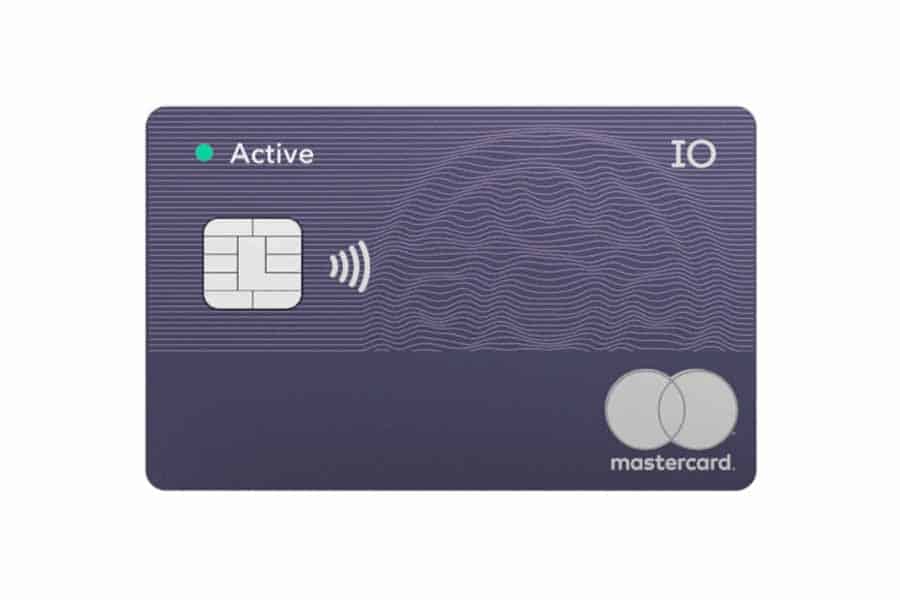Top Phone Interview Questions to Ask Candidates (+ Template)

Asking the right phone screen interview questions helps you vet applicants and narrow your field of potential new hires. Although companies often forgo phone screen interviews, they can provide valuable insight into a candidate who appears good on paper. Phone screen interviews last between 15 and 30 minutes and should cover only general topics, such as their knowledge of the company, employment history, skills, and expectations. In-depth discussions should be reserved for later interviews.
Here is a downloadable list of phone interview questions to ask candidates—feel free to customize it to fit your needs best.
Company Knowledge Questions
The phone screen interview is the perfect time to find out what the candidate is looking for and why they specifically wanted to apply for your open position. Ask the following questions to get a good read on the candidate.
1. What attracted you to apply for a position with our company?
Phone screen interview questions should always involve some discussion of the company. Anyone who is serious about a position and not just a tire kicker will have prepared for a phone screen by reviewing the company website and looking for information about company initiatives and other important details.
This question lets you gauge the applicant’s seriousness for the job. If they have done zero research, it shows that they may not be invested in getting the job or they’re not serious about leaving their current company. Many job applicants will passively job search and take interviews to use as leverage for a raise with their current employer. If you spot this red flag, it’s a good idea to eliminate this candidate and move on.
One of the best interview practices requires active listening when a candidate responds. As the employer, it’s important to listen for how much research the candidate has done on your organization and the position. Check our guide on how to interview someone for a job, whether in person, by phone, or via email.
2. What type of company culture do you thrive in most?
This question can give you insight into how the candidate works best―in a remote environment, working with a team, or in a hands-off approach. Some employees work best in an environment where their voice is heard. This type of organization is structured so that people of all levels are making decisions, managing their workflow, and collaborating with other team members. If your candidate is looking to be a leader, this may be a better solution for them.
If your company has a traditional hierarchical structure, where the team is led by one manager and tasks are delegated accordingly, then you may want to hire individuals who thrive on task-driven responsibilities. Some employees thrive best in an environment with this type of structure, as they know who their boss is and what is expected of them.
Similar questions to consider include:
- What is your ideal company culture?
- What kind of culture do you want to work in?
3. Why are you looking for a new job?
It’s a good idea to find out why the candidate is looking for a new job. Asking these questions will give you insight into why the candidate is looking. Maybe they’re just testing the waters, in which case they might not be serious about taking a new job—or they could be in a toxic environment and want to leave. In either case, you gain crucial insight into the candidate’s level of interest in the job.
This question comes in several forms, and you may want to ask them all:
- Have you just started your job search, or are you interviewing elsewhere?
- What makes you want to leave your current job?
- What are you looking for in a new job?
Job-specific Questions
For job-specific questions, you should ask things that will help you determine if the candidate’s background, skills, and experience align with the job requirements.
1. What is your employment background, and how does it make you a good fit for this role?
It’s essential that you pay attention to the description of their current job duties and how that aligns with those of your position. Also, keep your ears open for clues about how they interact with colleagues, their problem-solving skills, and their other soft skills.
While the candidate’s resume will give you insight into the types of positions that they have held and whether those align with your job description, some position titles may not be exactly what you are hiring for. Asking the candidate to explain their employment history allows them to talk about how their experience has prepared them for this role.
2. What specific skills do you have that align with the position?
This question helps you understand the candidate’s skill level and how it matches the qualifications for the job you need to fill. You’ll also see whether the individual is actively seeking to improve their skill set, making them more valuable to their current employer and marketable to new employers like you.
The candidate should discuss how their skills align with the job posting. This will allow you to see how they feel their expertise matches your expectations. They may naturally talk about new skills they’ve gained—but if not, it’s a good idea to ask them. If their skills do not exactly match what you need, this gives the applicant a chance to show what they can do by adding new skills or enhancing existing skills.
3. When you are balancing multiple projects, how do you keep yourself organized?
Employees handle their workload in different ways. Some may create lists to check things off as they complete tasks, while others may work on multiple projects at the same time. Learning how the candidate handles multiple projects can let you know how skilled they are at prioritizing their workload. This can give you a glimpse into how the candidate might handle working on multiple projects at one time.
Other questions to ask include:
- How do you prioritize important tasks?
- Explain how you work through your daily schedule to prioritize each project
- What does your ideal workday look like?
4. How do you handle conflicts within your job role?
This is a question that can raise some red flags. Depending on the type of position you need to fill, the answer could disqualify an applicant who doesn’t demonstrate the necessary interpersonal skills. You can phrase this question in many ways—conflicts with managers, colleagues, and clients—and make sure you’ve addressed all the relevant ones at some point during the interview process.
Pick the most important one for the phone interview to address. For example, if you’re hiring a store clerk, ask the question as it pertains to customers. If a candidate doesn’t demonstrate adequate customer service skills and de-escalation techniques, you may want to eliminate them from the hiring process.
When asking candidate questions during interviews, be careful not to ask illegal interview questions, such as those that could be deemed discriminatory like age, sex, race, and more.
Candidate Expectation Questions
The last few questions you want to ask the candidate should relate to their expectations of your company. This is an opportunity for you to learn what questions the candidate has about the position and your company and if their salary expectations and timeframe for starting work align with your plans.
1. What are your salary expectations?
Money can be a difficult topic to discuss, but it is one of the best interview questions. To be the right fit for the job, the candidate and the employer need alignment on salary. We recommend ripping off the bandage during the phone interview process. Many companies save this question for later interviews, but if you’re way apart on salary, the other questions don’t matter.
Many applicants will try to dance around this question and, if you like a candidate, you may be able to bend your budget. But don’t waste your time, or the applicant’s, if they expect way beyond your budget. In some states, you may be required to post the salary range in your job ad, but it’s still good to confirm the applicant’s expectations.
2. If offered the position, when would you be able to start?
While you may be flexible on a start date for the candidate, it’s a good idea to know when the applicant can begin work. You may need to fill a role quickly, and if the candidate needs to provide a one-month notice to their current employer, this may not align with your needs.
It can also give you insight into how many other jobs the candidate may be applying for at the same time. If you are not hiring for several months, and the candidate is looking to start immediately, this could mean that the candidate is entertaining several companies at one time. You could miss out on a great employee if your timelines do not match.
3. What questions do you have for me?
Hiring employees also requires answering questions that candidates have for you. Giving candidates space to talk, even briefly, makes the phone screen interview feel more like a conversation rather than a formal interview.
Candidates should be prepared to ask you questions. Even if they have just a few general questions about the company or a day in the life of the position they’re interviewing for, an applicant without any questions is a disinterested one. The questions asked should also vary; while one will probably be about salary or benefits, an interested applicant will also ask about company culture and job specifics.
How to Prepare for a Phone Interview as an Employer
Preparing effectively for a phone screening interview as an employer is crucial to efficiently evaluate potential applicants and ensure that you are moving the right people forward in the recruitment process. Here are some helpful tips to help you prepare:
1. Create a shortlist of candidates to screen
Start by identifying the most promising candidates based on their applications, resumes, and any other preliminary data, like assessments or cover letters. This focused approach can save you time and energy and allows you to dedicate more attention to potential fits.
Looking to hire the perfect candidate? Our applicant screening guide can help you to effectively evaluate resumes, conduct insightful interviews, and perform thorough background checks.
2. Review the candidate’s resume and job application
Before the start of the interview, thoroughly review the candidate’s resume, cover letter, and any additional materials they may have submitted. Make notes of any specific areas you want to explore further, such as gaps in employment, specific experiences, or skills that are particularly relevant to the position. Here’s our guide on how to screen resumes, along with practical tips and strategies.
3. Prepare focused interview questions
Develop a list of questions that are directly related to the role’s responsibilities and the specific skills required. Include behavioral questions that help reveal how candidates have handled relevant situations in the past. Ensure that questions are open-ended to encourage detailed responses. You can use the questions in this article or download the phone screen interview questions template.
If you need more ideas for your phone interview questions, check our guide for some behavioral interview questions—we even provide a downloadable template to make interviewing easier.
4. Determine your need outside the job requirements
Consider what soft skills and additional attributes are critical for your company culture and the team this role will interact with. You might also want to clarify their availability in terms of starting dates and potential notice periods that need to be served with their current employer. If the job requires relocation or frequent travel, it is also necessary to clarify this upfront.
5. Set an interview structure
Plan how you want the interview to flow. Decide the order of the topics you’ll cover, how much time you’ll spend on each section, or or whether you’ll allow time at the end for the candidate’s questions. A structured approach helps keep the interview on track and ensures all important aspects are covered.
6. Create a comfortable environment
Even though it is just a phone screen interview, strive to create a comfortable atmosphere. Be punctual, introduce yourself clearly, and explain the structure of the interview to the candidate. This sets a professional tone and eases nerves that might affect the candidate’s performance.
Phone Screen Interview Red Flags
Spotting potential red flags early can save time and resources in the hiring process. Here are seven of the most common red flags you need to watch out for:
- Lack of professionalism: Poor phone etiquette, such as taking the call in a noisy environment, frequent interruptions, or showing up late for a scheduled video or phone call, can indicate a lack of professionalism.
- Inability to provide specific examples: If a candidate struggles to provide concrete examples that demonstrate their skills or accomplishments, it may suggest that they lack the experience or are just exaggerating their qualifications.
- Negative comments about previous employers: Candidates who focus on criticizing their past employers or colleagues may be difficult to work with or could bring a negative attitude to your team.
- Inconsistent answers: Watch for inconsistencies in what the candidates say during the interview compared to what is on the resume or what they’ve claimed in past interactions. This could indicate dishonesty or poor memory of their own experience.
- Lack of preparation: If a candidate seems unaware of what your company does or has not prepared questions to ask you, it might show a lack of enthusiasm for the job itself.
- Vague responses: When asked about their experiences or reasons for job changes, candidates who give vague answers may be hiding something or might not have as much experience as they claimed to have.
- Too much focus on salary: While it’s normal to ask about compensation, those who focus heavily on salary or benefits may be more interested in the perks of the job rather than the job itself.
Frequently Asked Questions (FAQs)
The most direct way is to contact the candidate by telephone and ask specific screening questions to verify if they are qualified for the position. Additionally, however, you can use the first interview to conduct a video interview. This will allow you to see how the candidate responds to questions when asked on the spot.
Validate the candidate’s fit for the job, get to know them as an individual, and determine if they have enough positives to move on to the next round of interviews. If not, then send them an email that thanks them for their time but makes clear that your company is not moving forward with their candidacy.
This interview should last no more than 15 to 30 minutes, including time to answer the candidate’s questions. This brief interview will give you enough information to determine if you would like to move the candidate to the next round of interviews.
Bottom Line
Preparing for a phone screen interview can be daunting. By planning for the most common phone screen questions and keeping a record using our phone screen interview questions template, you can ensure it is a good use of everyone’s time.




![how-to-create-a-pto-policy:-small-business-guide-[+-template]](https://zabollah.com/wp-content/uploads/2024/05/16725-how-to-create-a-pto-policy-small-business-guide-template.jpg)
